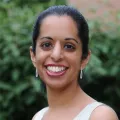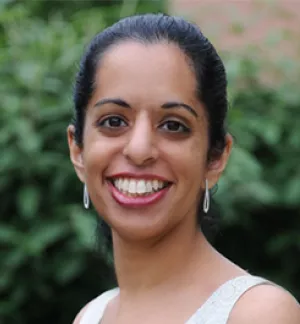Diasporas are communities of individuals who share a common heritage, yet are spread throughout the globe. For instance, I am a member of the Indian diaspora, though I was born and raised in the United States. My distinguished colleague Calestous Juma is a member of the Kenyan diaspora. Such diasporas can play a powerful and influential role in international development, because the individuals in such diasporas share special knowledge and relationships within their diaspora communities. Moreover, diasporans act as informal ambassadors for the United States in their countries of origin. According to the United States Department of State, the United States is home to the largest number of global diaspora members of any country worldwide.
On May 13–14, 2013, the United States Department of State and the United States Agency for International Development convened the 2013 Global Diaspora Forum in Washington DC. A select group of 400 individuals, representing 100 diaspora communities, were invited to attend the event to network and discuss ideas for promoting education and economic development among diasporans. The conference kicked off with a keynote address by Dr. Rajiv Shah, Administrator of USAID. Dr. Shah emphasized that the mission of the Global Diaspora Forum was to foster human connectivity and human connection to bring about positive change. He stated that diasporas can accelerate development and human aspiration to maximize positive impact. Dr. Shah’s speech led into a conversation with Dr. Gebisa Ejeta, Distinguished Professor at Purdue University, 2009 World Food Prize Laureate, and a member of the Ethiopian diaspora. Dr. Ejeta commented that diaspora engagement minimizes the possibility of misunderstandings. The diaspora is effective because it blends the core values of both an individual’s heritage and the American heritage, enabling diplomacy based on shared beliefs.
These discussions were a perfect lead-in to our “unconference” session on STEM Diasporas: Developing a Network and Sharing Success Stories. The session was organized by me, Dr. Gillian Bowser of Colorado State University, and Dr. Noshir Contractor of Northwestern University, with the goal of developing science and engineering diasporas for economic development. Our session focused on strategies for knowledge networking, social networking, and cognitive networking. The session was attended by close to 50 individuals representing government, industry, NGOs, academic faculty, and academic administrators at the levels of provost and dean. Participants not only networked with one another, but also worked in small groups to identify priority areas for STEM Diasporas. These priorities include: (1) increased project funding for innovation; (2) increased access for collaboration; (3) increased visibility for recognition; and (4) increased mentoring for navigation.
The second day of the conference began with an inspirational keynote by Dr. Bob Hormats, U.S. Under Secretary of State for Economic Growth, Energy, and the Environment. Dr. Hormats stated that “America’s story is the world’s story,” and diasporans are the world’s grass-roots ambassadors. He highlighted the personal and intrinsic nature of diaspora communities. He pointed out that diasporans are important sources of innovation: immigrants are 30% more likely to start a business than U.S.-born citizens, and 52% of Silicon Valley start-ups have been founded by immigrants. Dr. Hormats posited that any area of intellectual ferment and activity is filled with diasporans. Deepening and expanding diaspora networks can be a source of partnerships for the United States; diversity is a source of diplomacy and development. He concluded, “It is our hope that by bringing you together, we will create new opportunities for partnerships with the private sector, civil society, and public institutions in order to make your engagements with your countries of origin or heritage effective, scalable, and sustainable.”
The Under Secretary’s speech was followed by a panel of famous athletes from the diaspora, including football player James Ihedigbo, figure skater Michelle Kwan, and runner Meb Keflezighi. Ihedigbo in particular described how challenges in his own life led to determination and excellence.
Overall, the 2013 Global Diaspora Forum was a moving experience, which afforded the opportunity to meet high-achieving diasporans from all over the world. The forum highlighted the ability of individuals to bring diverse perspectives to bear on complex problems, as well as the potential of each individual to contribute to innovation, technology, and economic progress.
Bhatia, Sujata. “Engaging Global Diaspora Communities for International Development.” August 22, 2013


